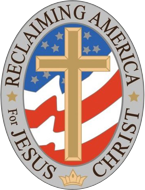APPLIED ECONOMICS DISPLAYS THE TRUTH
In 2008, there was a Pastor’s Conference in Washington, DC. There were many wonderful speakers who addressed a variety of topics. One of the key speakers was a former six-term representative from Ohio, Congressman Bob McKewen. Congressman McKewen delivered an incredible lesson on Economics. Considering the current state of affairs in our nation and the repeated efforts to “bail out” our economy, enjoy some of the highlights of this lesson delivered last May.
If you earn a hundred dollars and get to take home that $100 dollars you have complete freedom to buy, invest or give away up to $100. Now suppose I take 25% of the money you’ve earned away from you. You have fewer choices, less freedom and a lower standard of living. Suppose I take half of it away from you, then you have even fewer choices and an even lower standard of living. Suppose I take it all, and leave you with nothing? When a person works all day and keeps none of the fruit of his labors, that person is called a slave.
There are only two people that can take money from you against your will. The first is a thief and the other is the government. You come home from work and open your paycheck only to find out that Uncle Sam has already been there.
The simple definition of a nation’s economy is the total amount of goods and services bought and sold. Higher taxes result in less freedom, fewer choices and a lower standard of living for the wage earner. Consequently the result is a slower economy. You can look at any state or nation and you’ll find that greater the percent of the Gross National Product that goes to the government, the less prosperous the nation. The principal is the greater the freedom of the individual, the greater the wealth of the nation; the greater the government, the greater the poverty.
Consider as an example North and South Korea. They have the same heritage, culture and climate. After the Korean War ended, North Korea had total Socialism. In the last five years, 2.5 million Koreans have starved, the roads are dirt, and you see people walking around bent over because they have been eating twigs and grass to fill their stomachs.
South Korea with the same heritage, the same culture, the same climate received freedom in 1953 and last year had the 10th largest Gross Domestic Product in the world. What is the principal? The greater the freedom, the greater the wealth. When you understand that, you can make any rich nation poor and any poor nation rich.
One reason is understanding the concept of “third party” purchasing. Let us suppose you are going to buy something with your own money and plan to use it yourself. This is called a “first party” purchase. You care about both price and quality and you use your money for the maximum benefit. You want the most bang for your buck.
Now let’s suppose you are going to buy something to give to someone else. This is a “second party” purchase. You still are concerned about the price since you are paying for it, but you are not quite as concerned about the quality since you are not the end user. The further removed that person is from the end user, the more flexible one becomes on the issue of quality. That is human nature.
A “third party” purchase is purchasing something that you will not use or consume with money that is not yours. You will not be concerned about the price, because it is not your money and you are flexible about the quality, because you aren’t the end user. By definition, all government purchases are “third party” purchases, made with money that is not theirs to buy something that they will not consume. Therefore, there WILL be waste in government spending. There will be waste in the highway department; there will be waste in the defense department. That is one reason why our founding father established a limited federal government knowing that the government should do only what we cannot do for ourselves.
For example, according to the American Institute for Philanthropy, a charity’s effectiveness is acceptable if 60 percent of what it collects reaches its intended charitable mission; donors should avoid contributing to organizations where less than 60 percent of funds reach the designated target. What percentage of every dollar collected by the government for the poor actually reaches them? A dismal 30 percent. The U.S. government is quite possibly the nations’ most inefficient mechanism for meeting the needs of the poor. (The Bible, Voters and the 2008 Election, by David Barton)
Every time we take a dollar from an individual to save and produce the maximum benefit and instead run it through a governmental pipeline, we are in the process of making the nation poorer.
You look at any city, state or nation and you’ll see that the greater the government, the greater the poverty, the greater the freedom of the individual, the greater the wealth and that is what applied economics in politics is all about.


Recent Comments